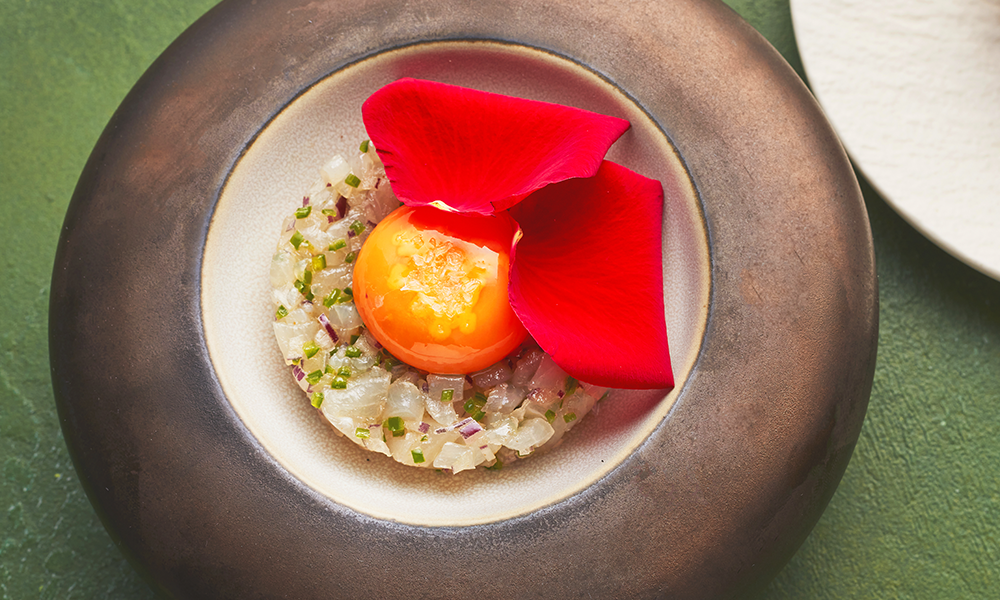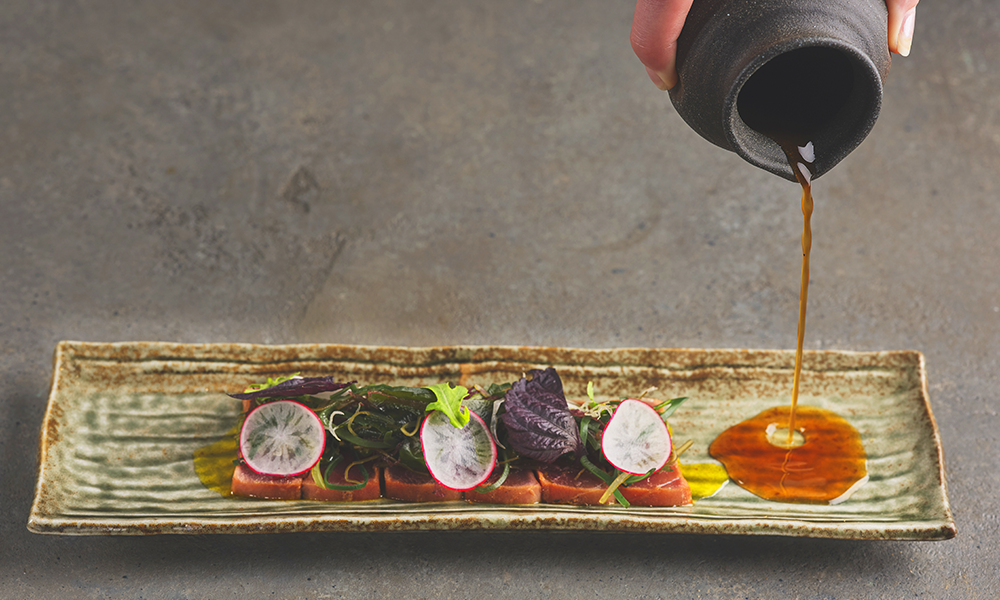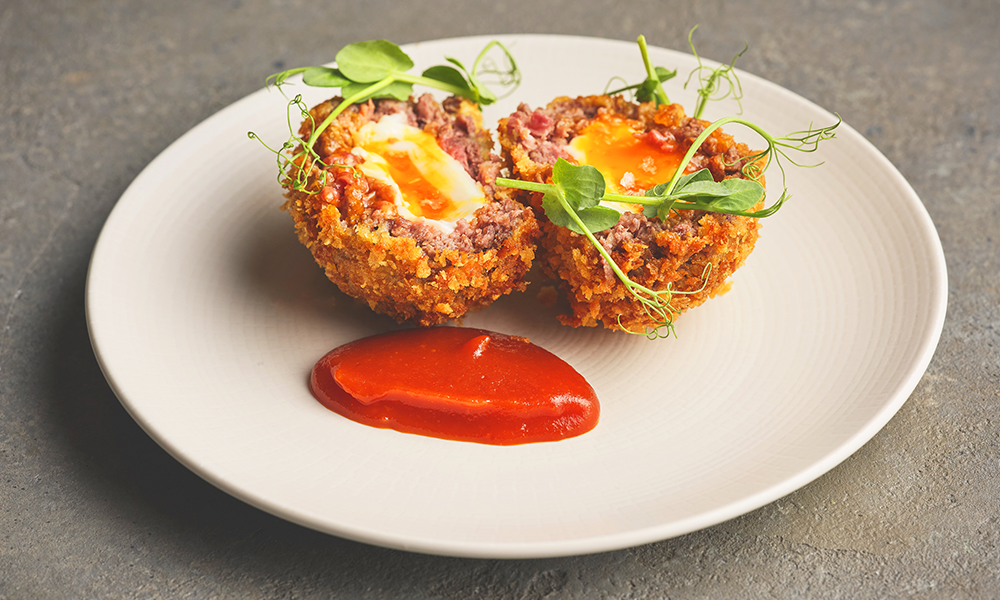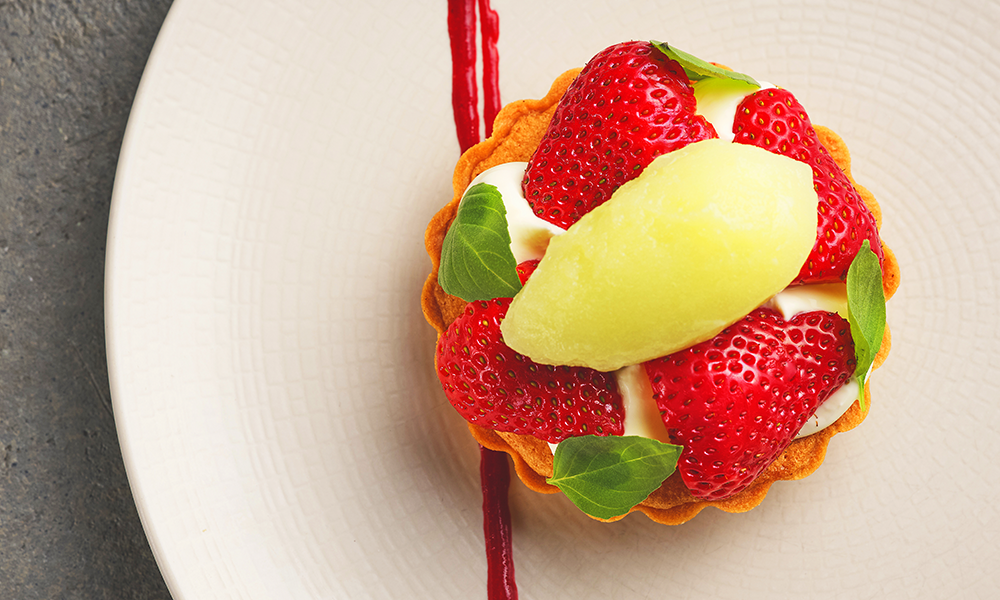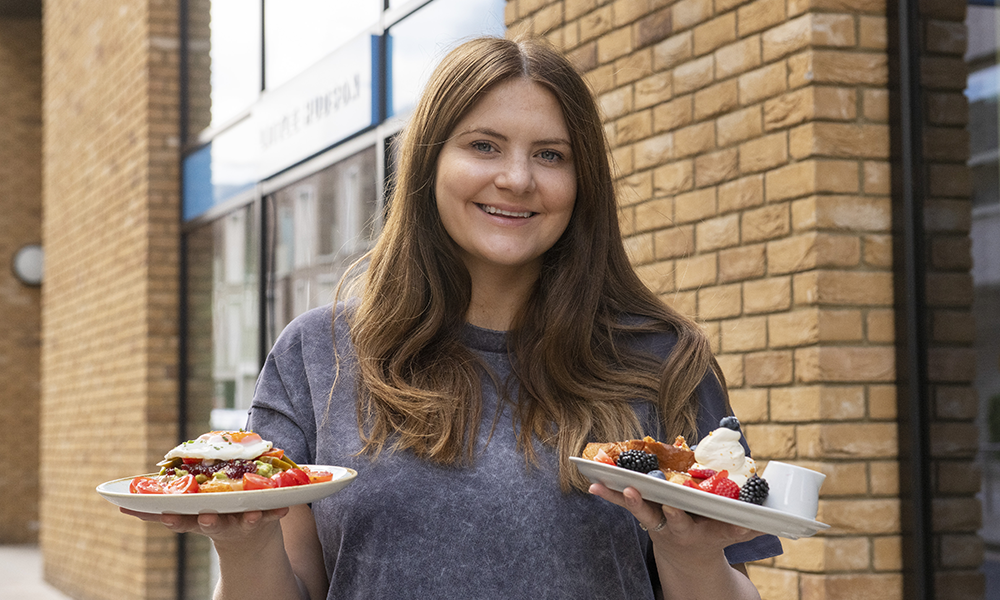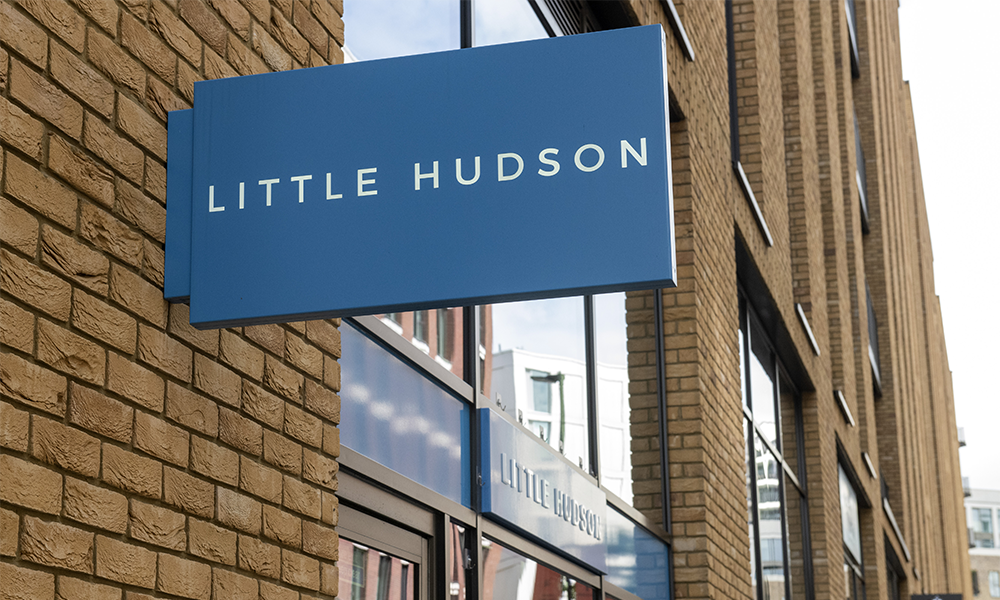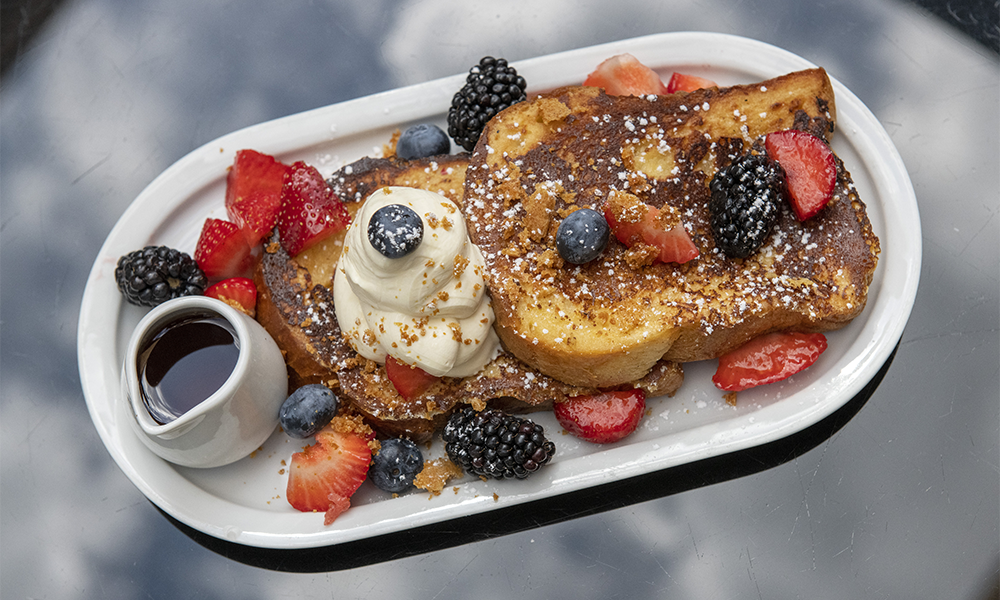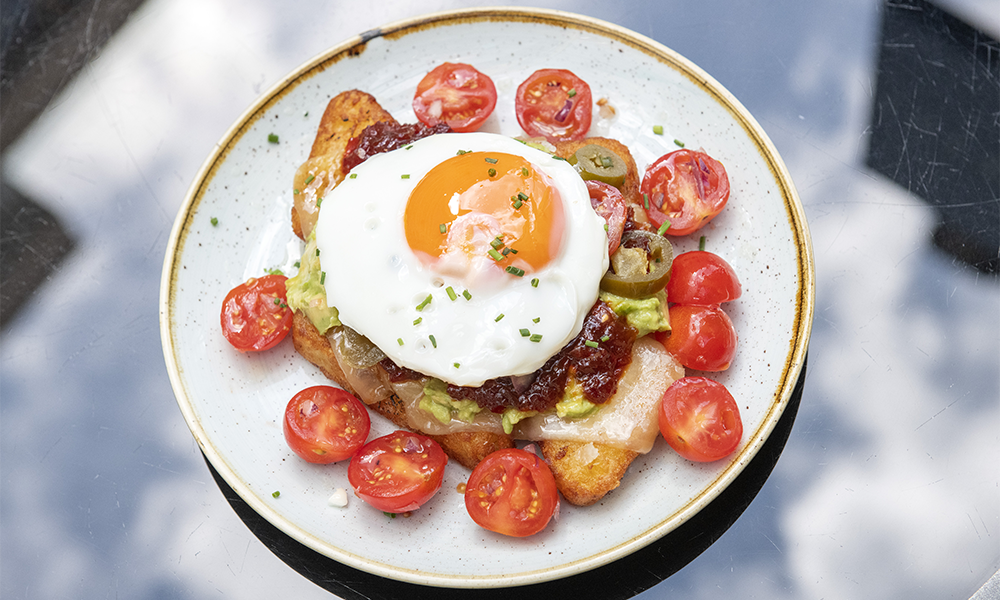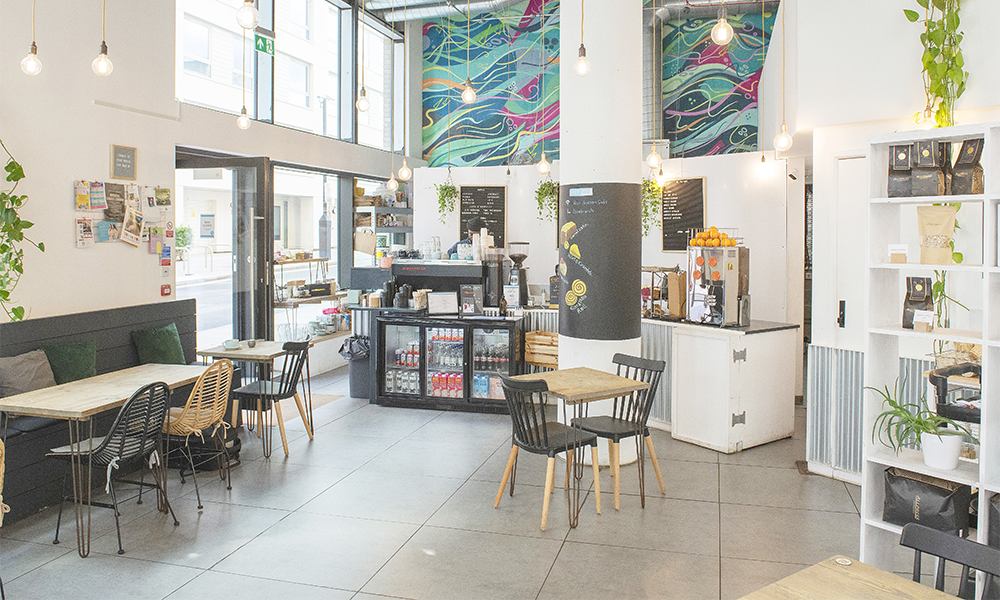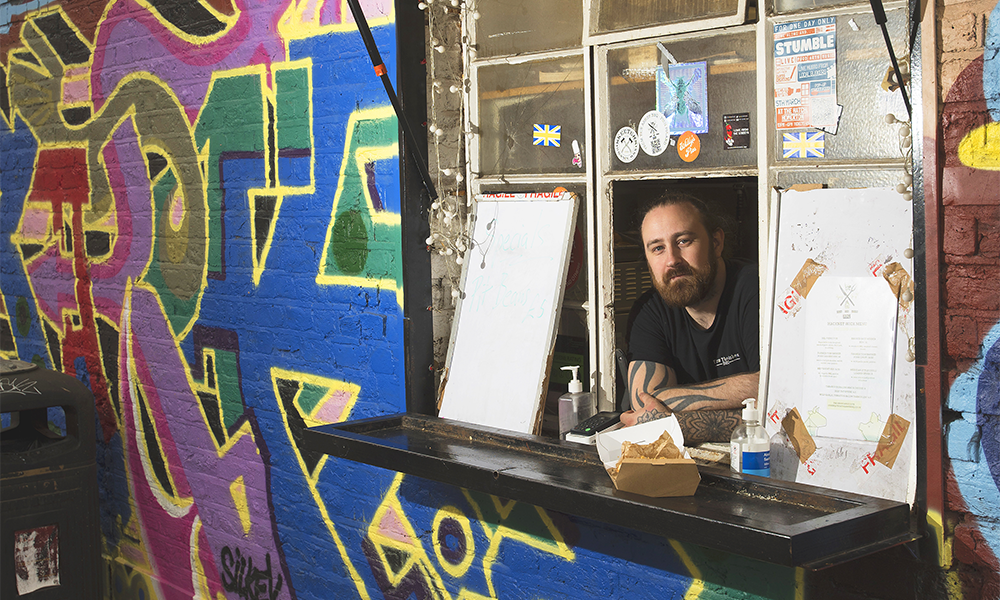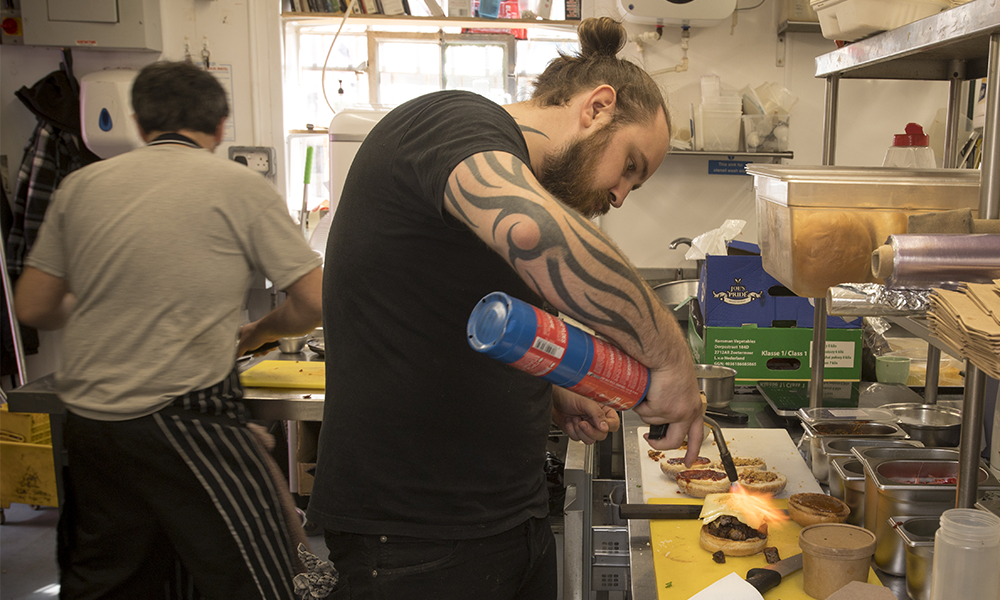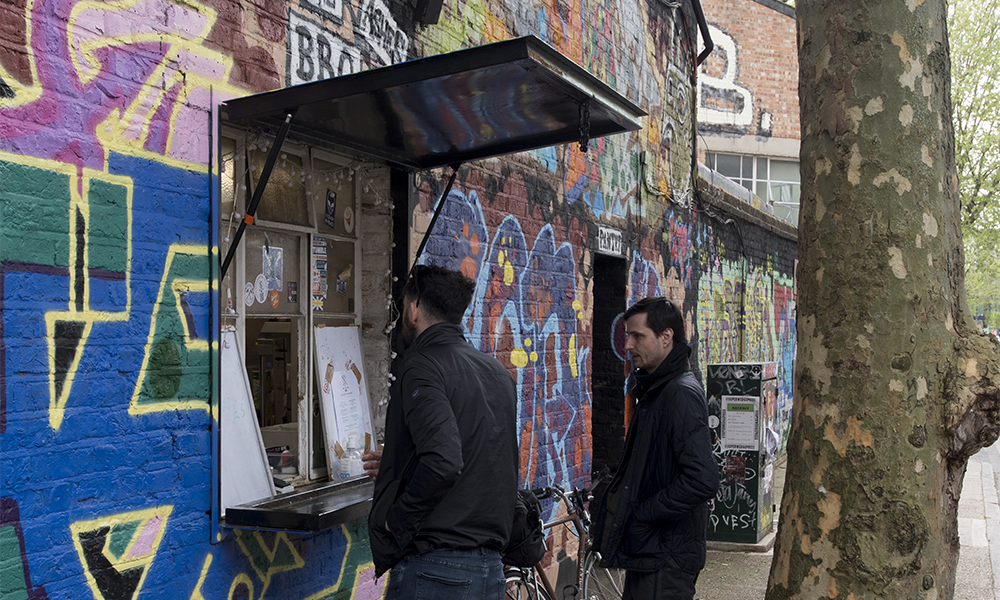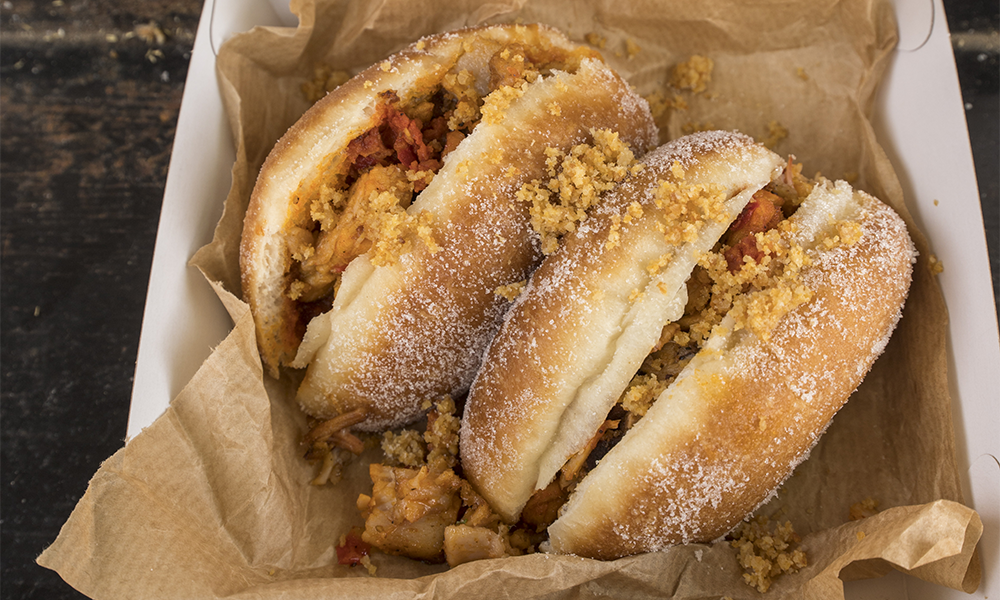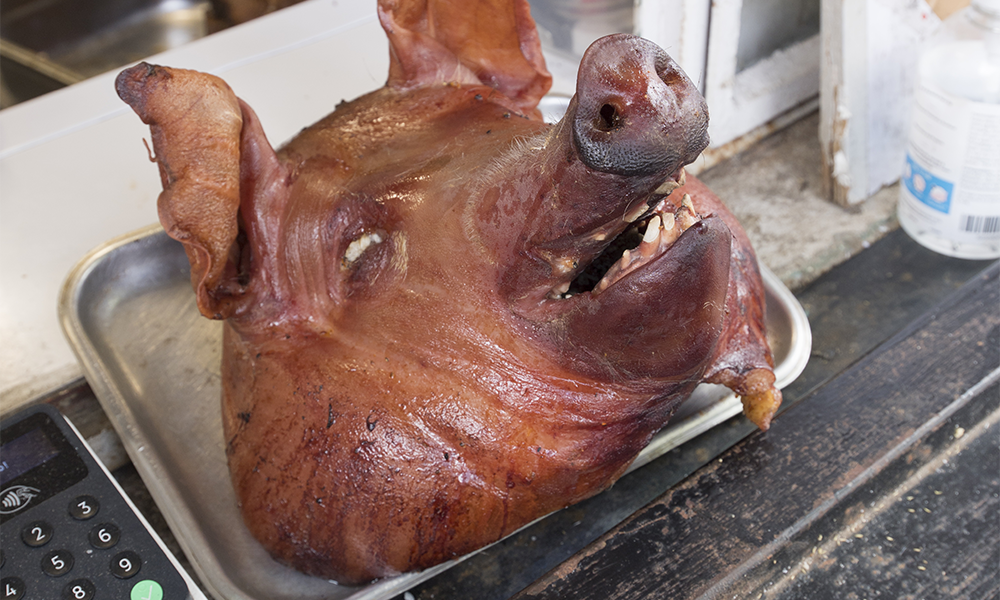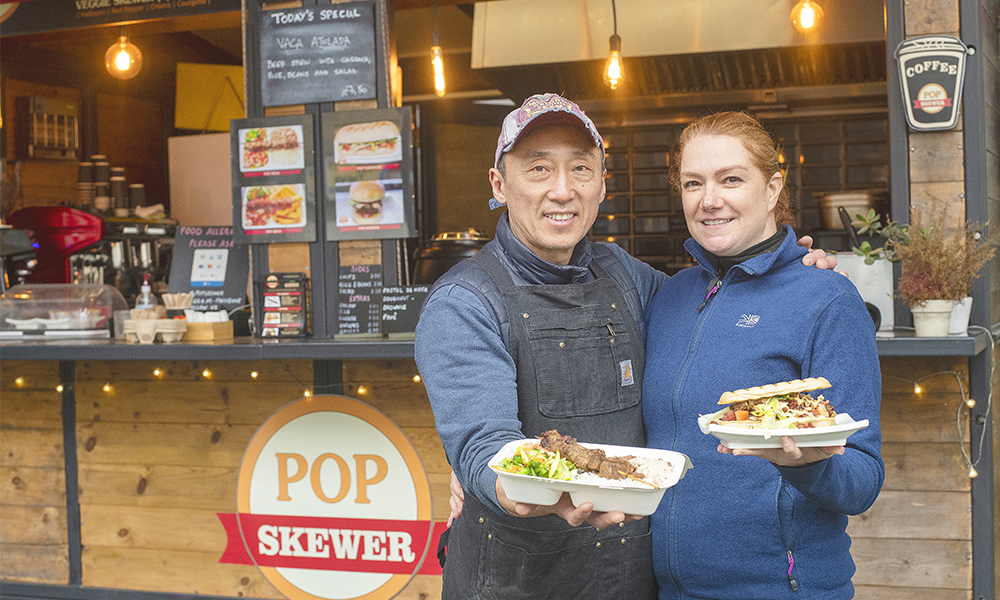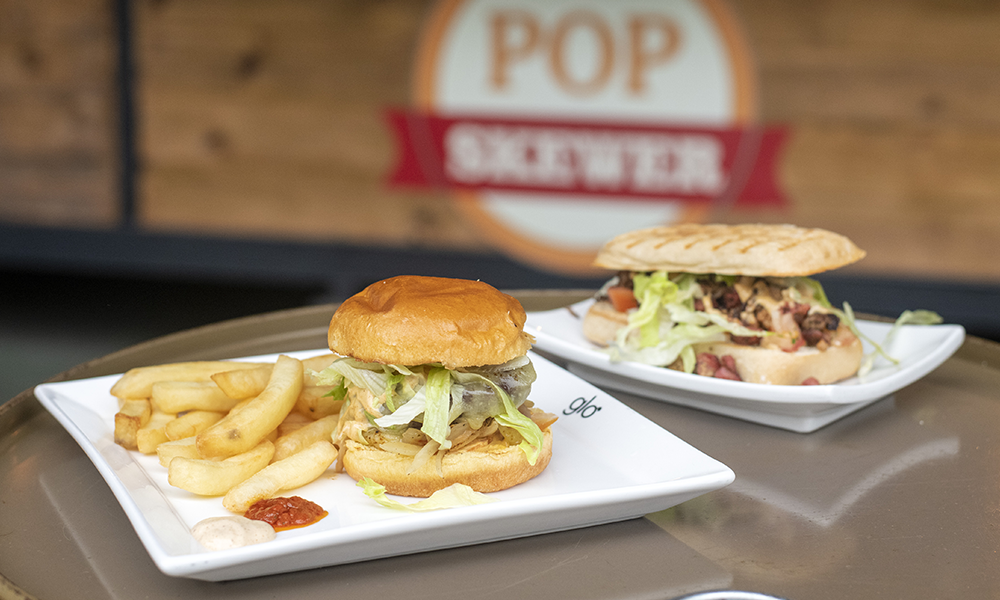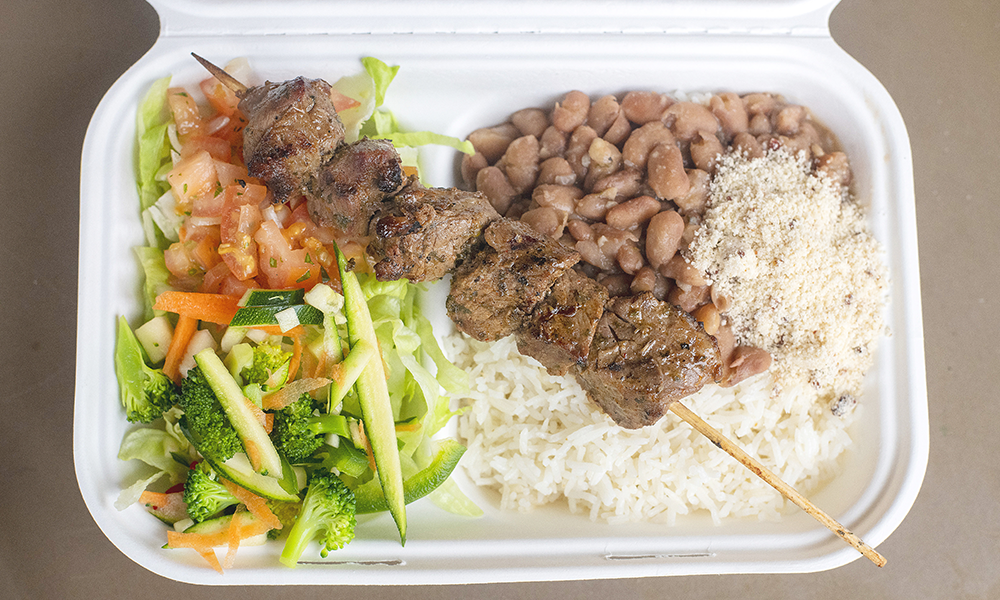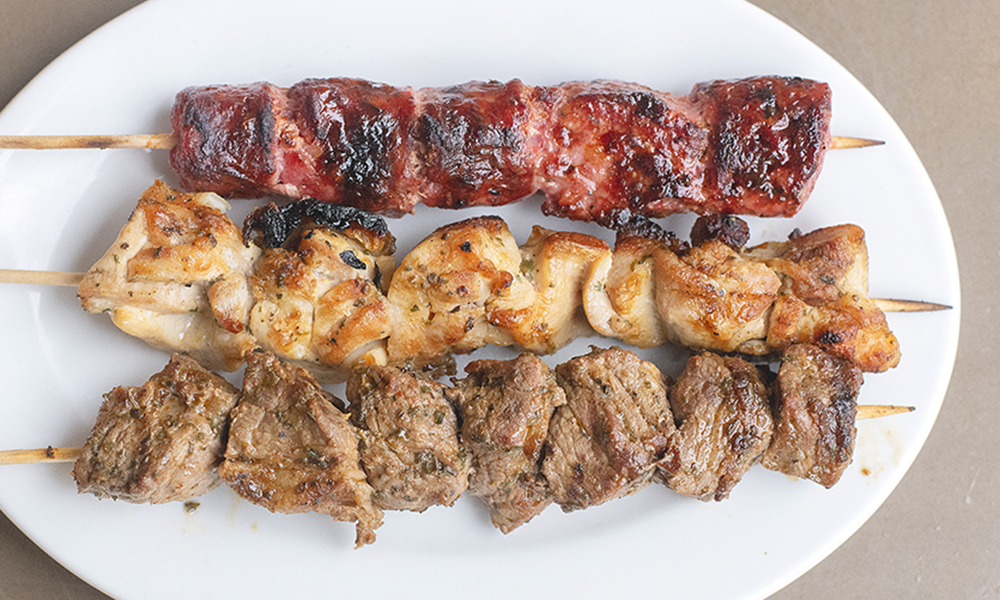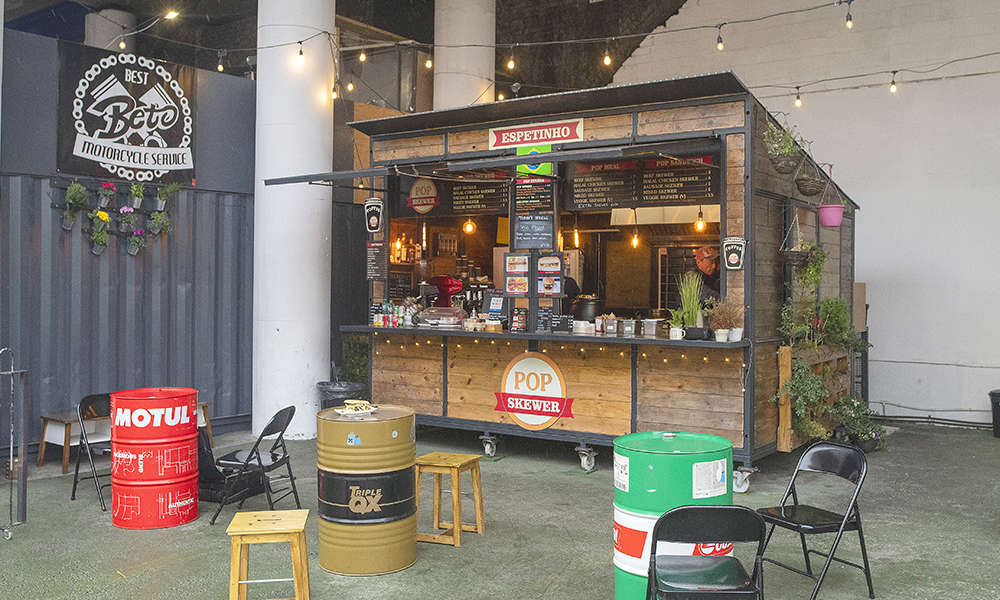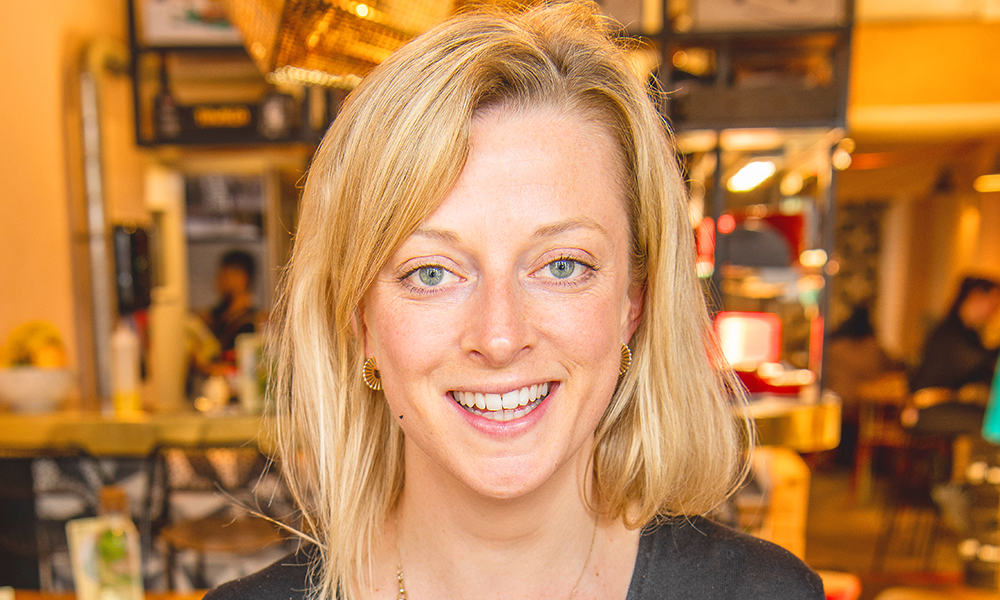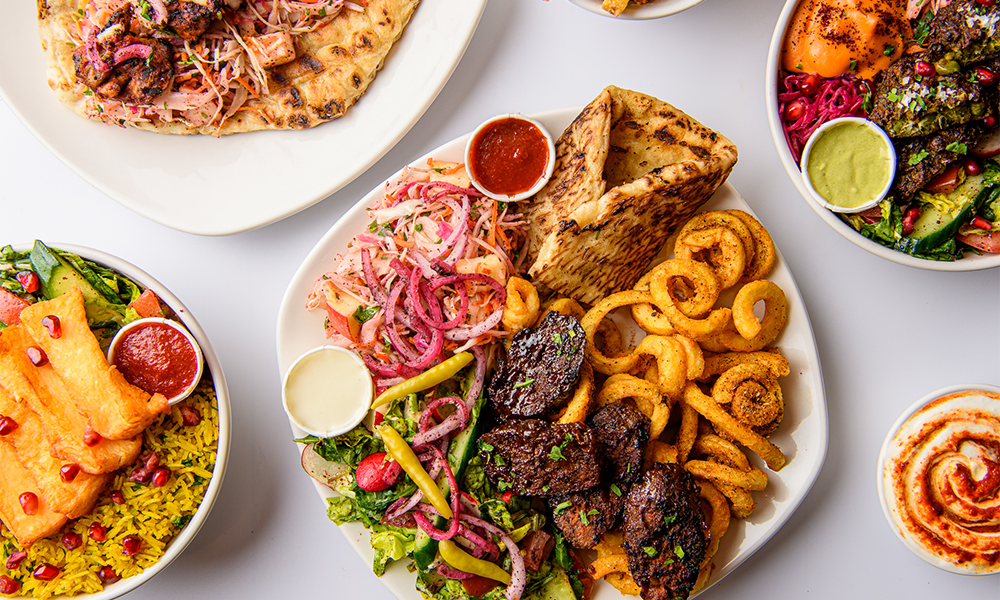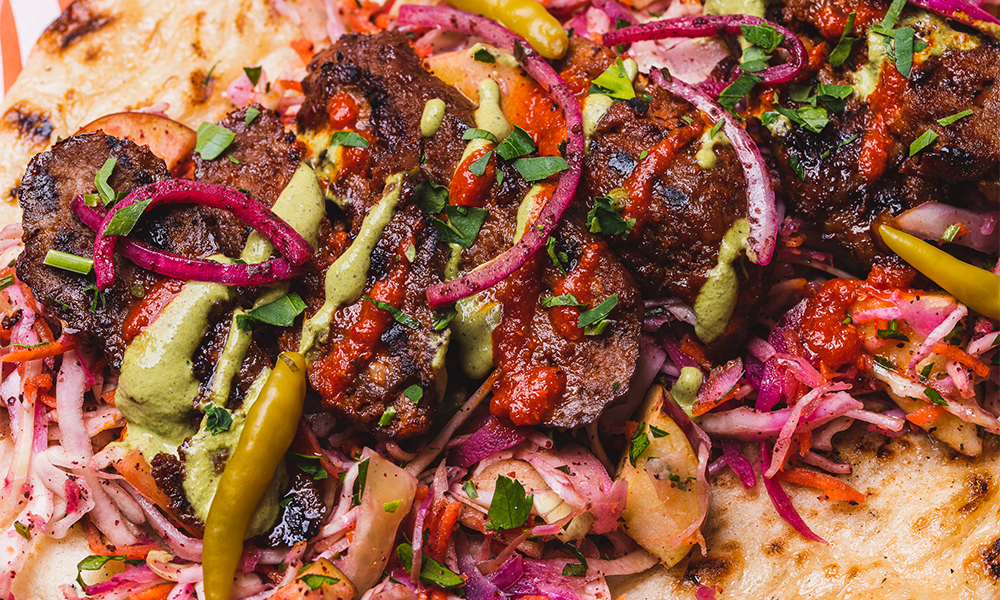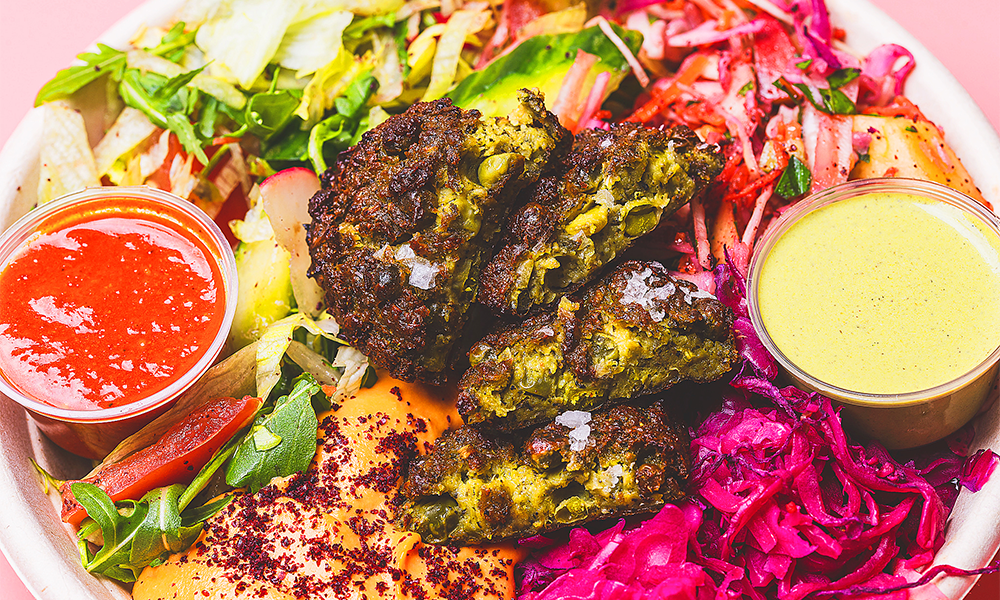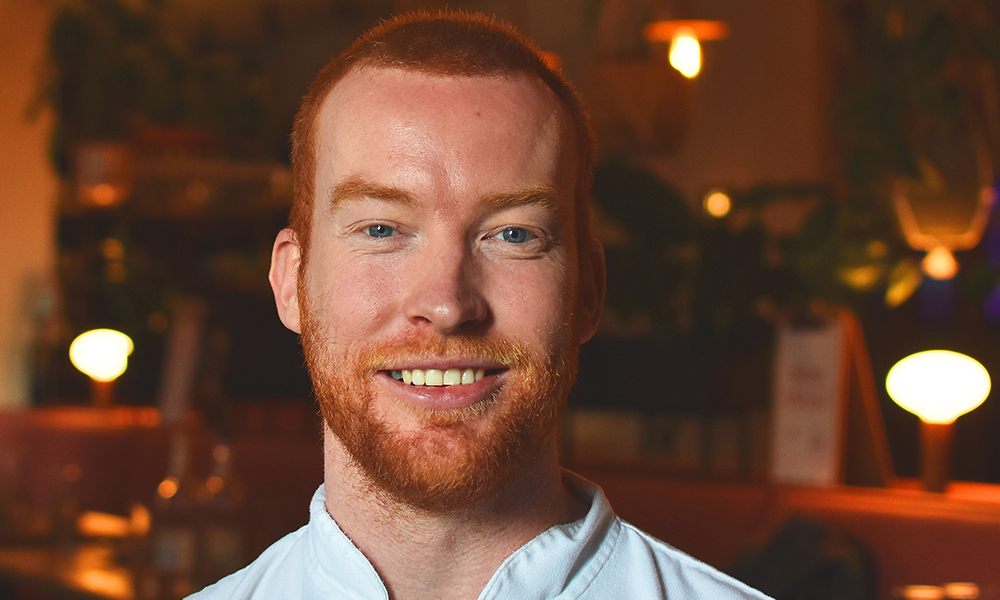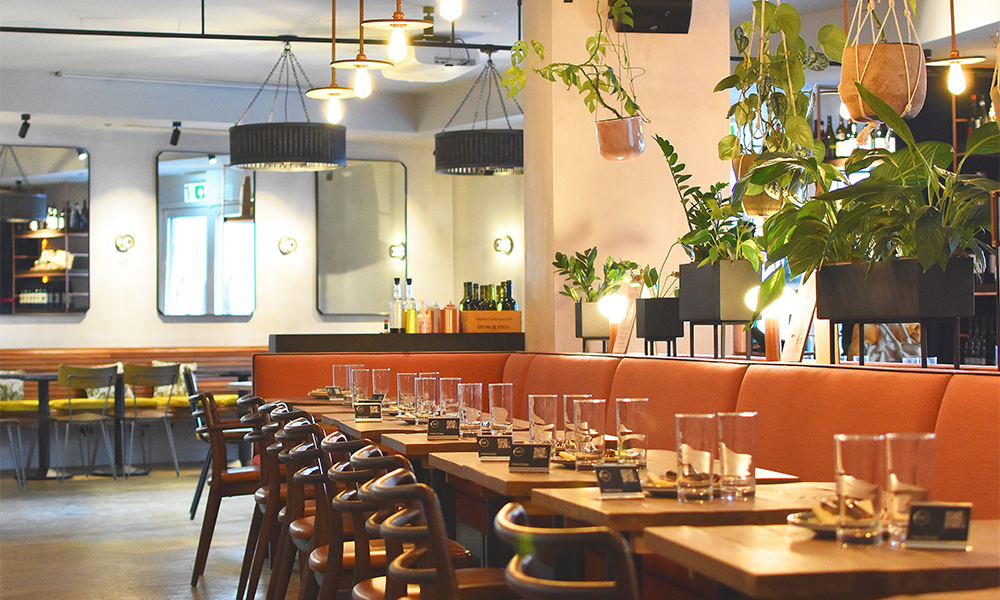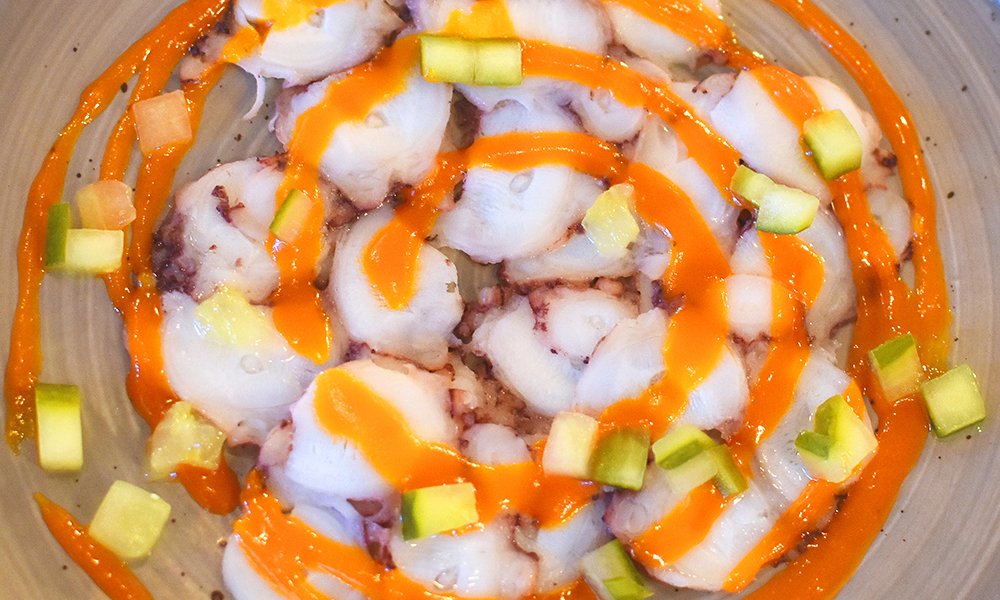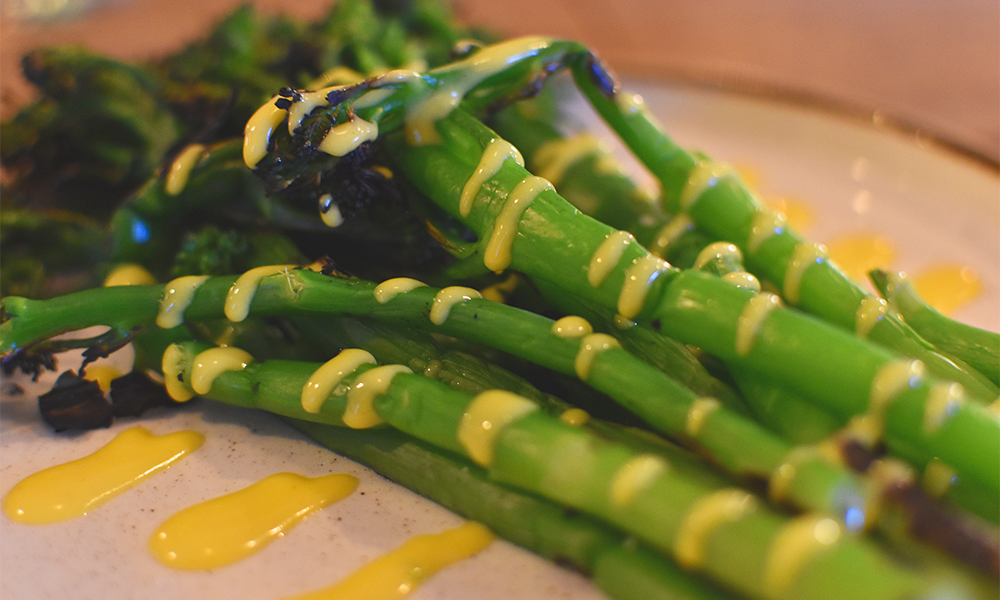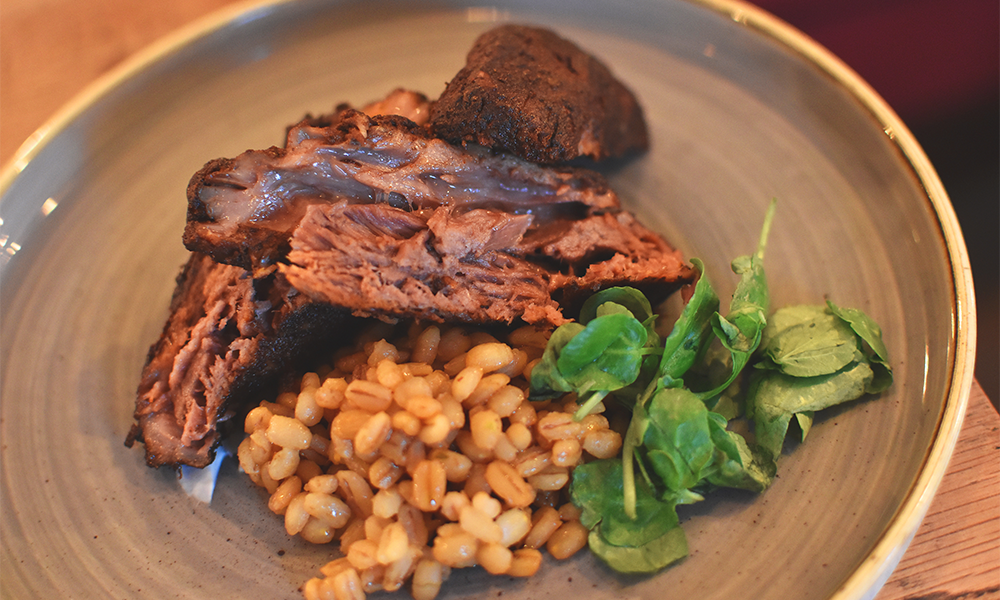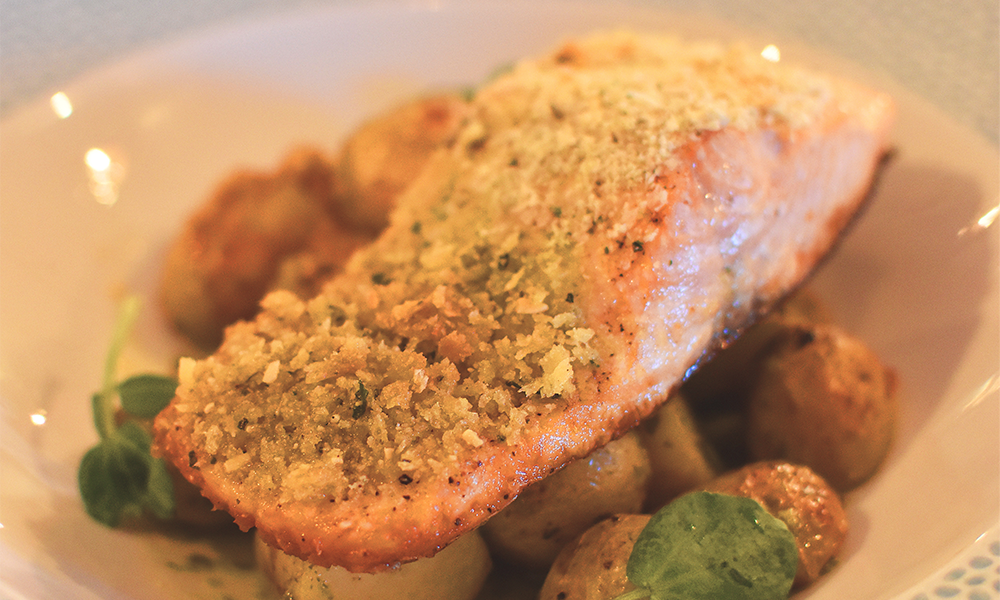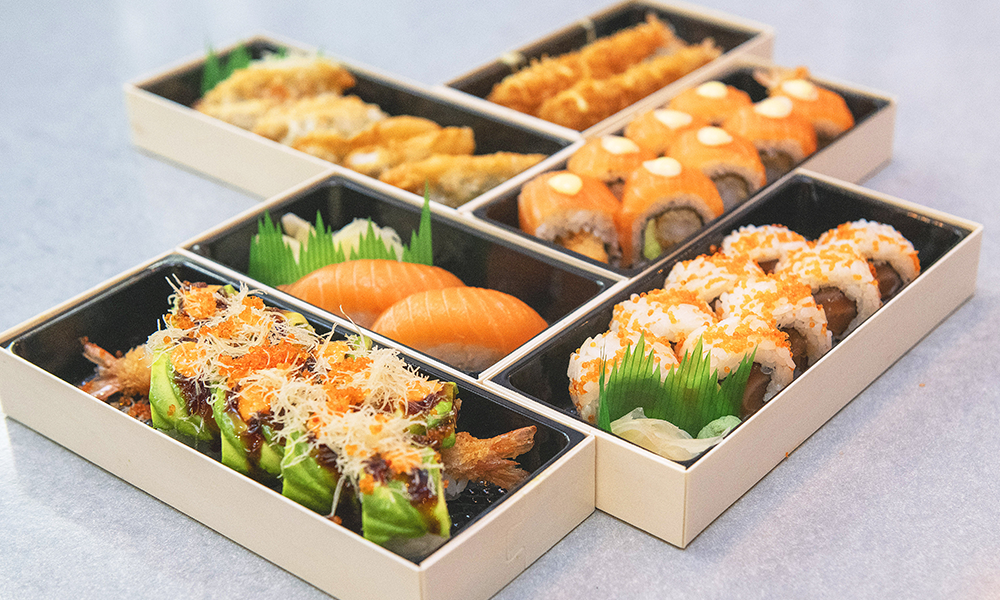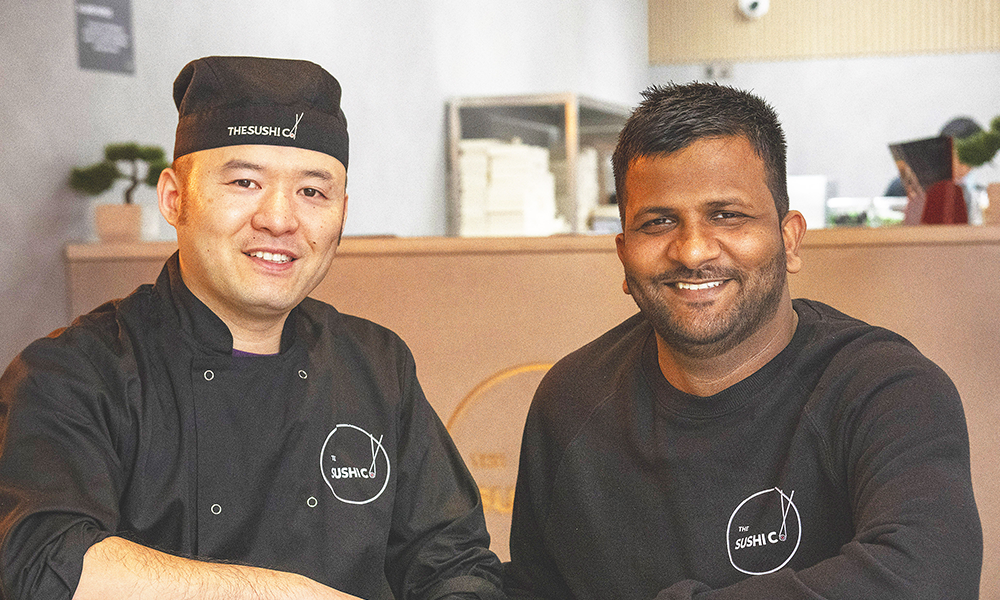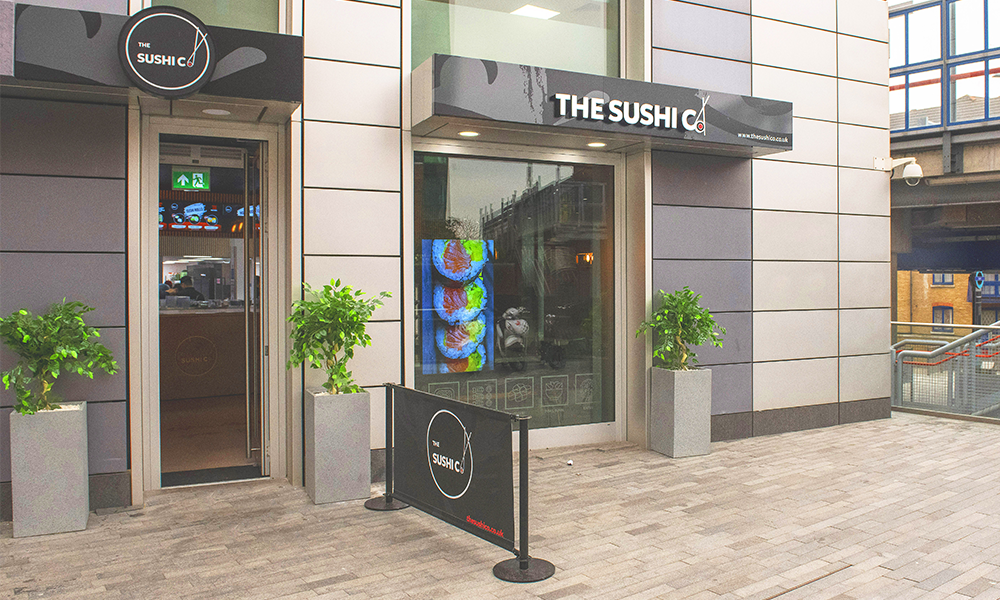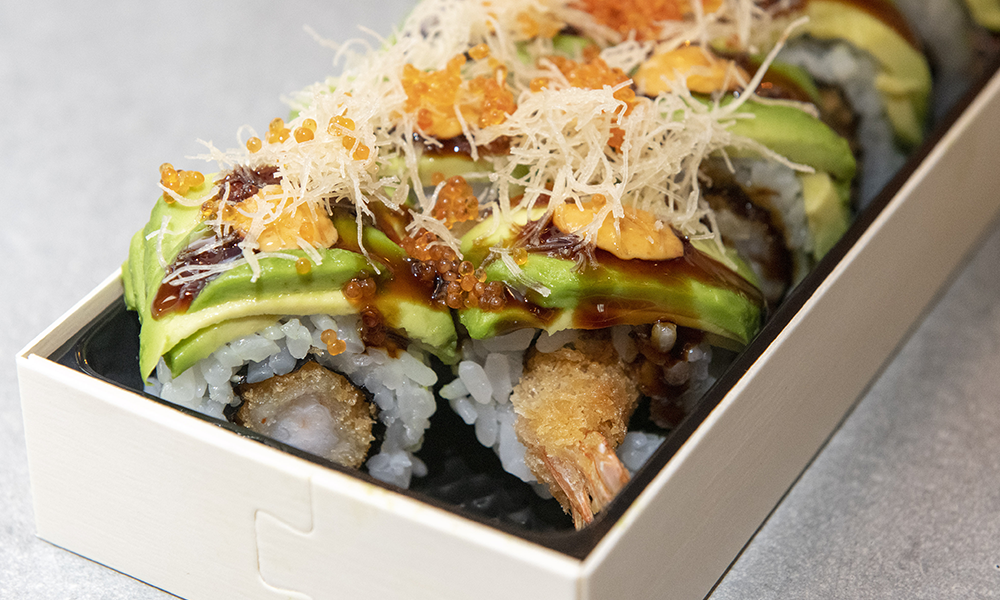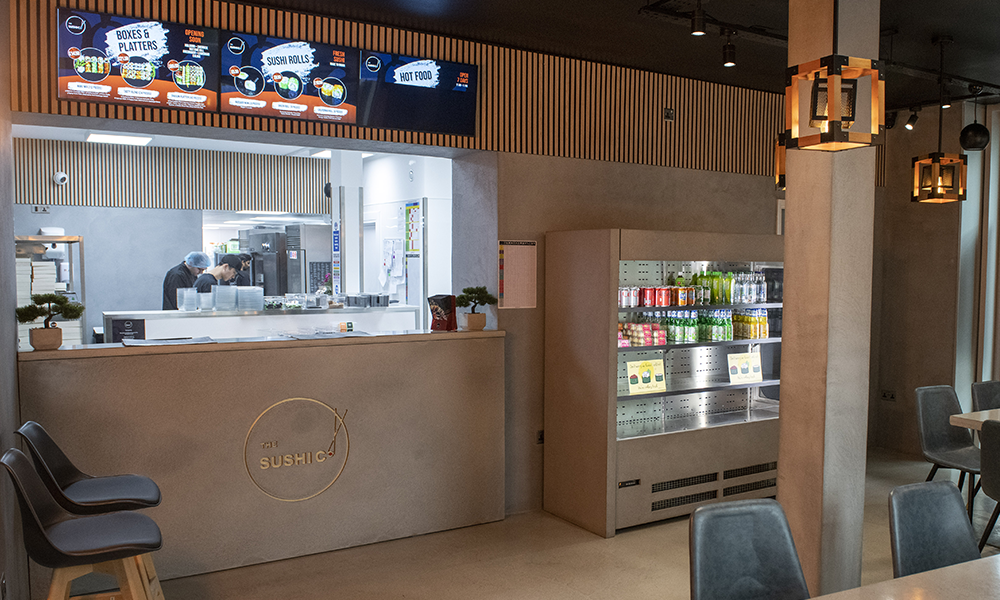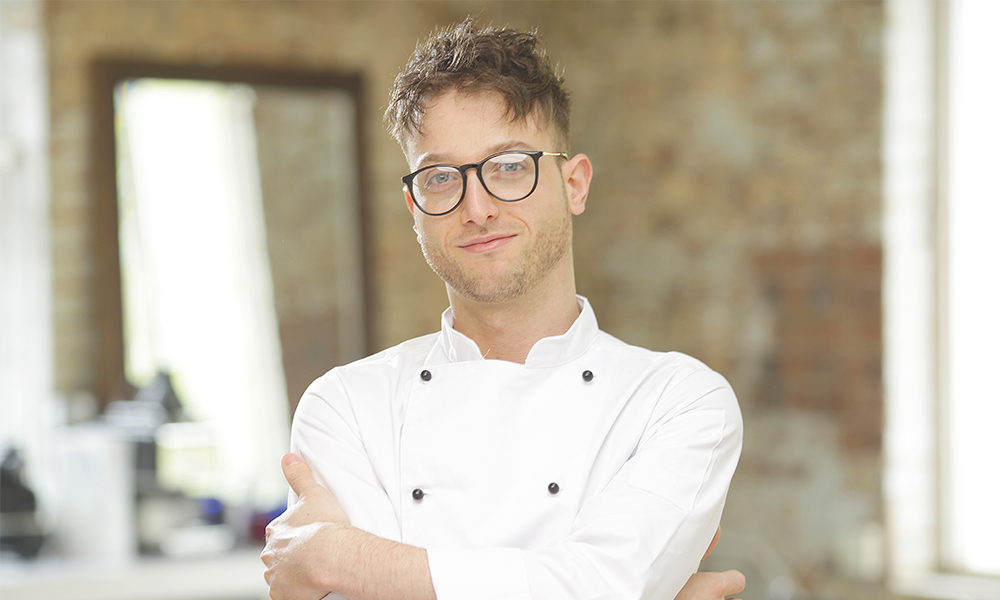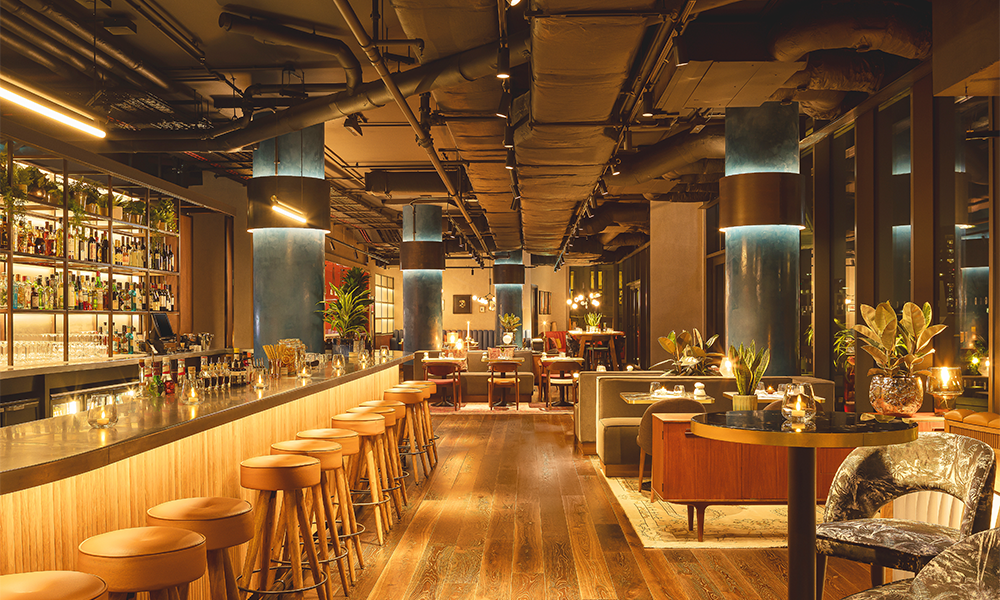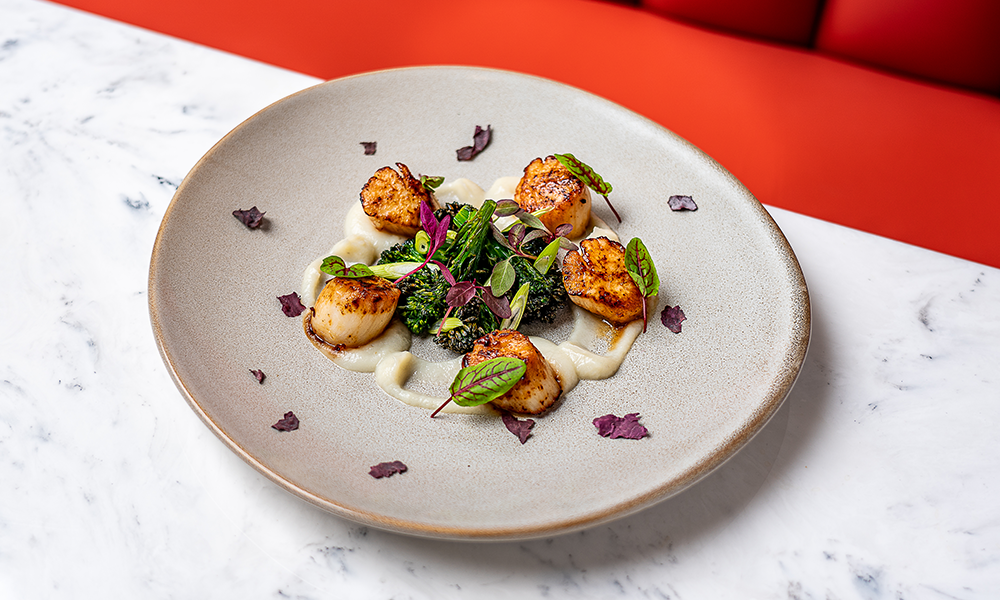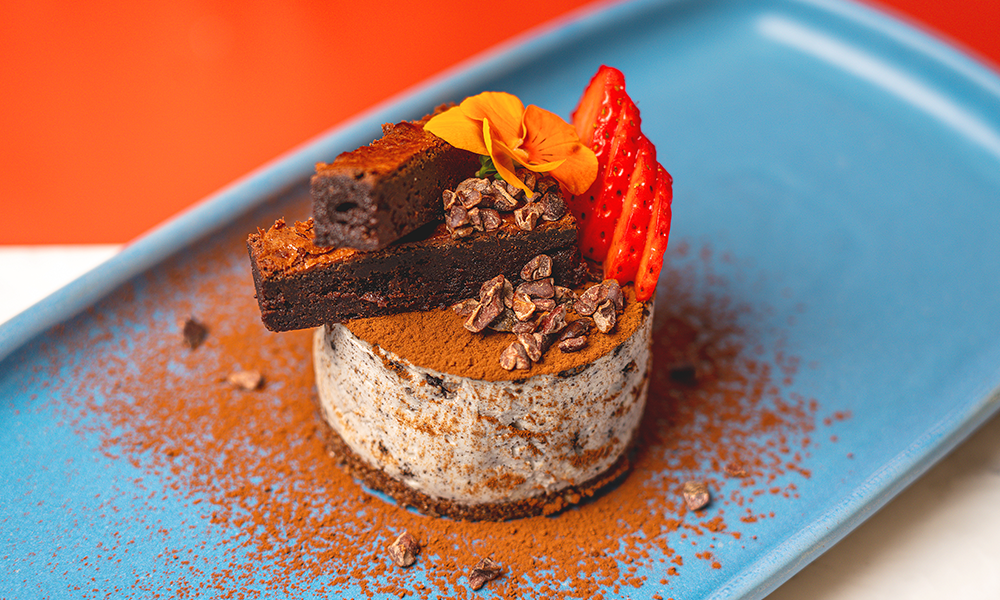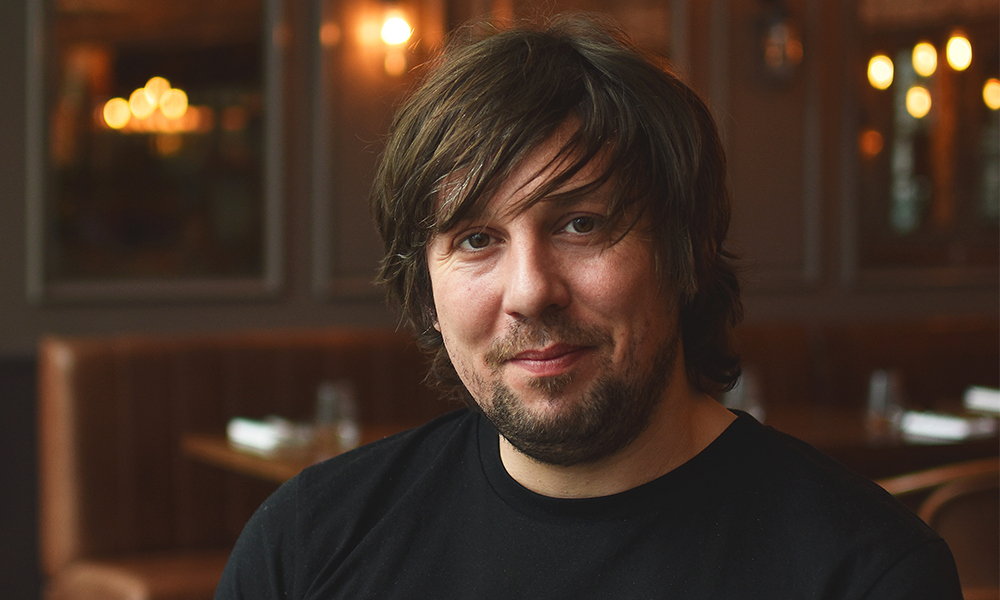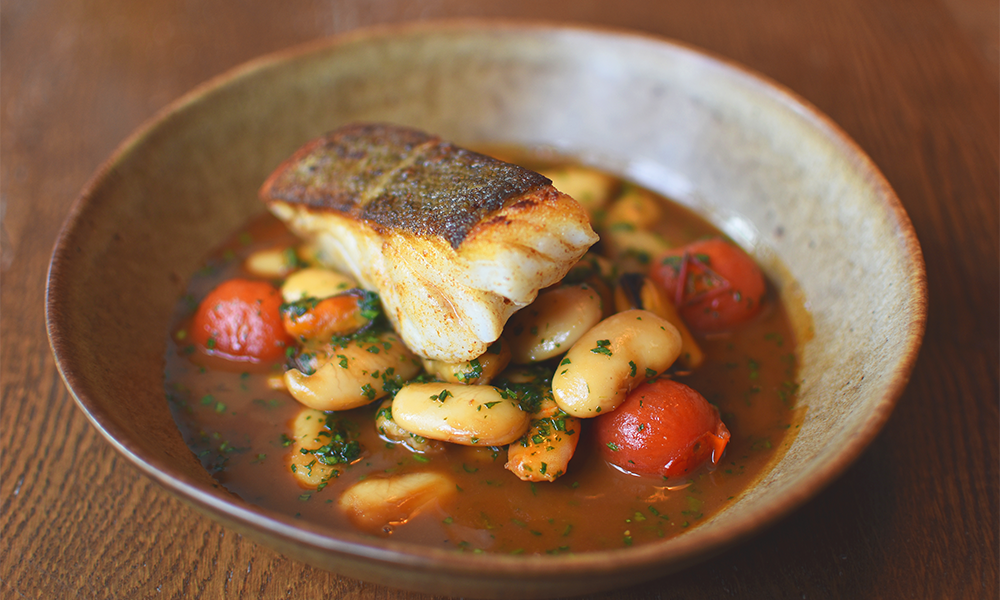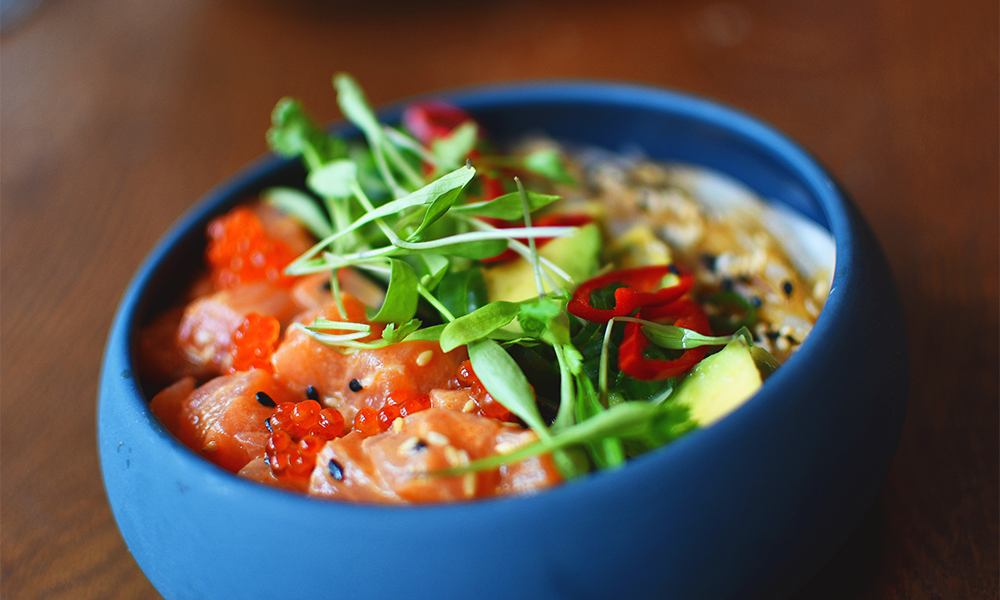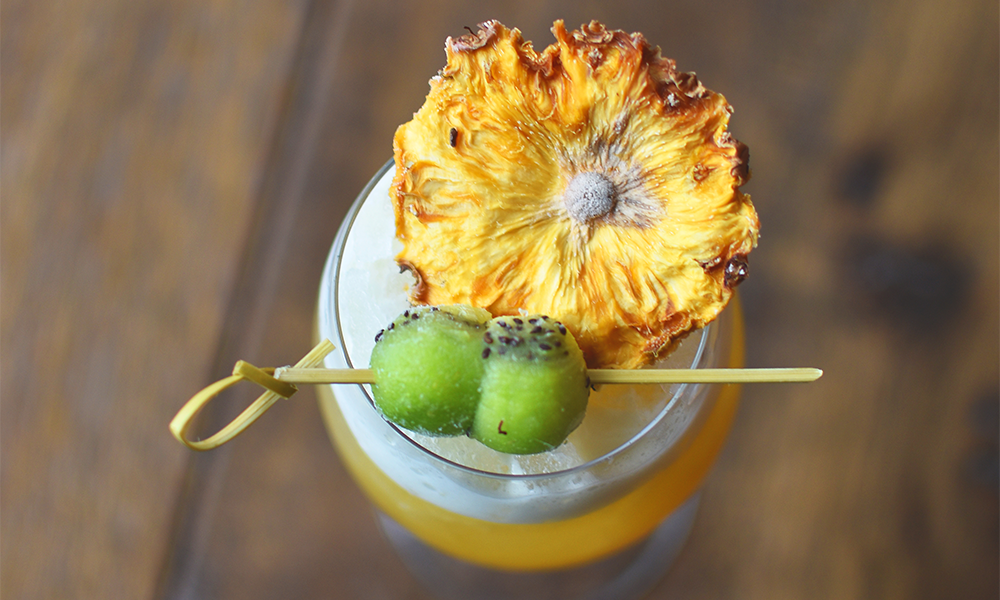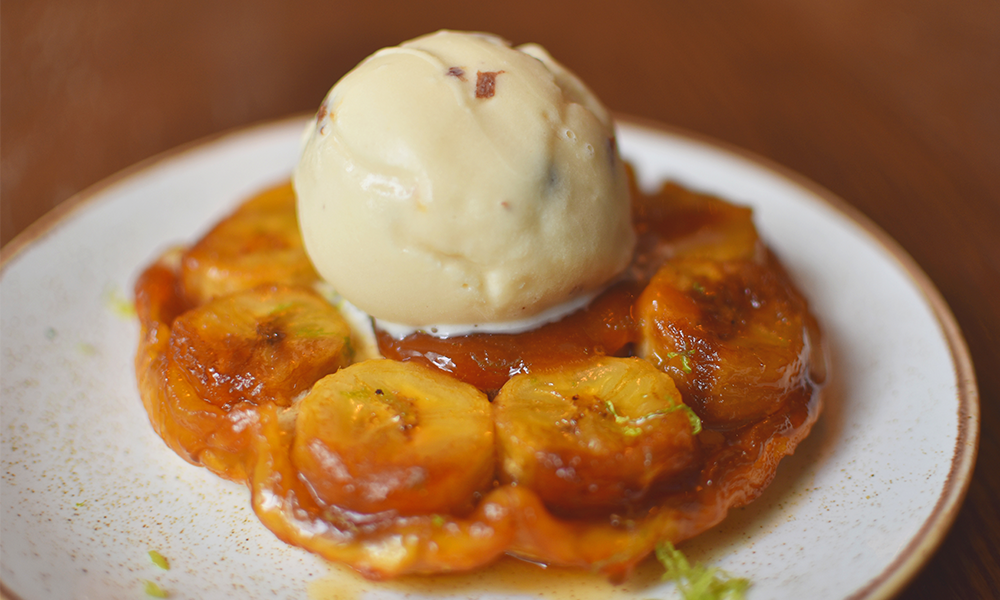Pizza restaurant at Artworks Creekside uses secret blend of flour and time to create signature dough
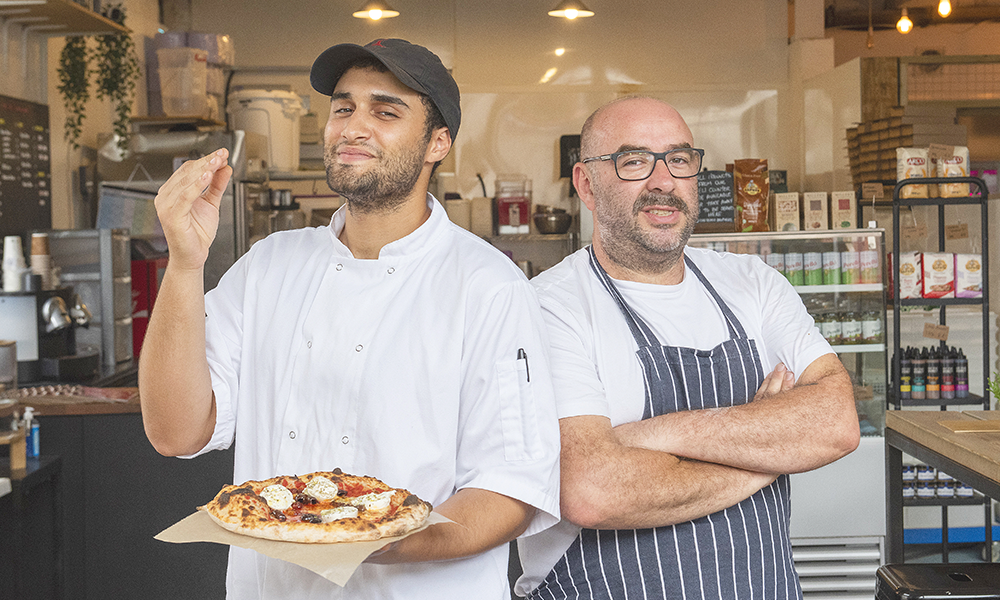
Subscribe to Wharf Life’s weekly newsletter here
BY LAURA ENFIELD
They say you are what you eat. Well, layers of Deptford life are folded into the pizza at The Yeast Brothers.
Firstly, the sourdough base is made by catching the wild yeast in the air around the Artworks Creekside and fermenting each ball of dough for 48 hours.
“The dough is the main thing,” said co-founder Rafael Pinto, 25. “We don’t like to talk about what goes into ours – it’s secret – but we mix different types of flour so it is very light and crispy at the same time.
“It’s all about the fermentation. If you leave it to over-ferment it’s not going to be nice and we have to control the temperature and hydration overnight. It’s a science.”
The next layer is their background. Bermondsey resident Rafael and co-founder Ale De Menezes, 43, both hail from São Paulo in Brazil, but left their homeland’s traditions behind to mix Italian style with their own modern take, which includes vegetables from Deptford and chorizo from Spain.
“Pizza is a very big thing in Brazil,” said Rafael. “They say it’s the best in the world. The Italians would disagree with that, I’m sure.
“It’s a different style because they don’t use a long fermentation like the Italians. They make the dough in the morning for that night.
“Here, the long dough is very important to us. We like to be patient and let it grow by itself and don’t try to push it.
“It makes it easier to digest because you use less yeast but, of course, without the yeast we would be nothing.”
Hence The Yeast Brothers. Except they’re not actually related. Not by blood anyway.
Ale has been friends with Rafael’s father since they were teenagers in Brazil and it was he who introduced the youngster to pizza making in Deptford.
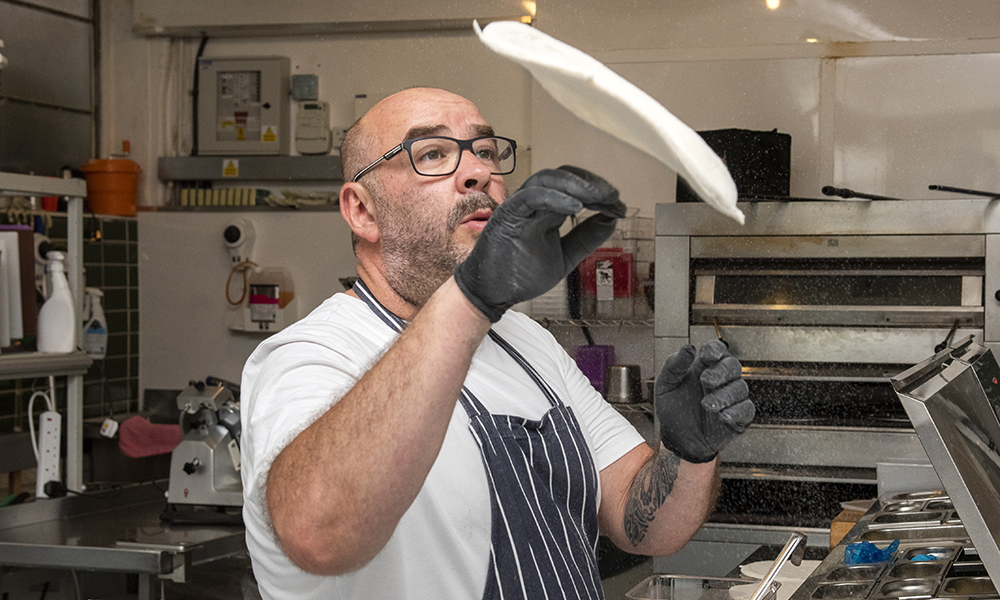
“When my dad knew I was coming to London, he contacted Ale to help me,” said Rafael.
“Ale used to work in TV production in Brazil and made pizzas but it wasn’t his main job.
“A few years back he went to live in Australia and started working in a kitchen making pizza. When he came to London, he kept doing it.”
When Rafael arrived in London, fresh from culinary school in Brazil, Ale helped him settle in and get a job at Wandercrust at The Duke pub in Deptford.
It was here that the ingredients of The Yeast Brothers began slowly fermenting.
“Ale was the master who taught me everything I know about pizza and we sort of became brothers for life,” said Rafael.
The duo worked at Wandercrust until April 2021 when the business moved to Greenwich, building on their shared love of pizza and dreaming of their own operation.
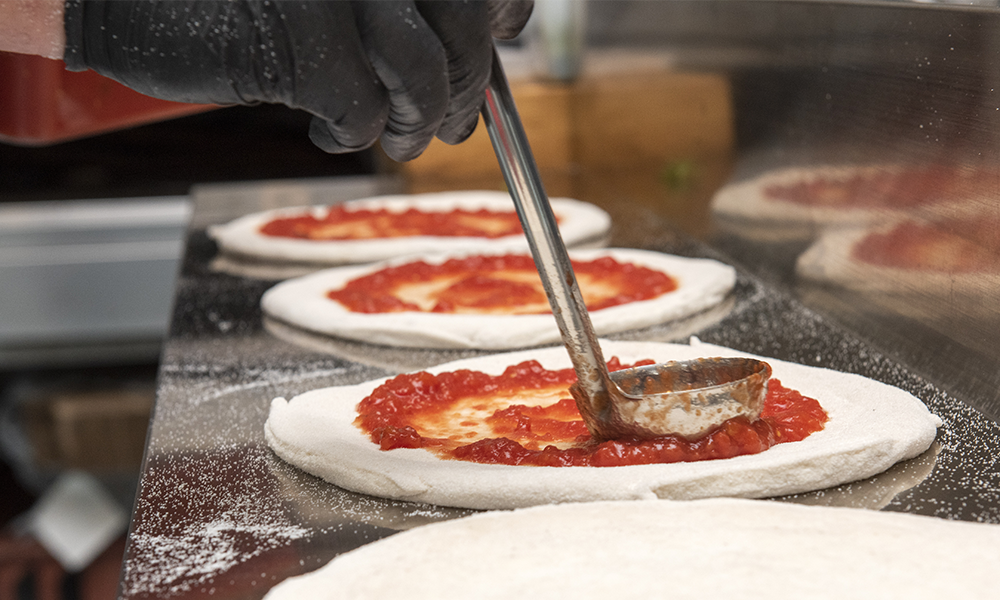
It was lockdown that gave them the push to roll out their own dough.
“During the pandemic, it was just us in the kitchen not talking to anyone but the drivers, so it gave us time to talk and come up with the concept and choose our identity,” said Rafael.
“Ale’s the most hard-working guy I know, so I knew he would be the best partner for me.
“I feel like the pandemic helped because otherwise, it would have taken a lot longer.”
Money to make the dream a reality was tight, but then the team from Deptford Bus approached them with “the perfect opportunity” – a space and some equipment to get them started.
They traded there until December last year but once again were left stranded when the business closed.
Again, Deptford came to the rescue when the team from Artworks approached them with a space.
Hopefully now settled for a while, they are concentrating on developing their menu which offers up classic pizza flavours and some surprises.
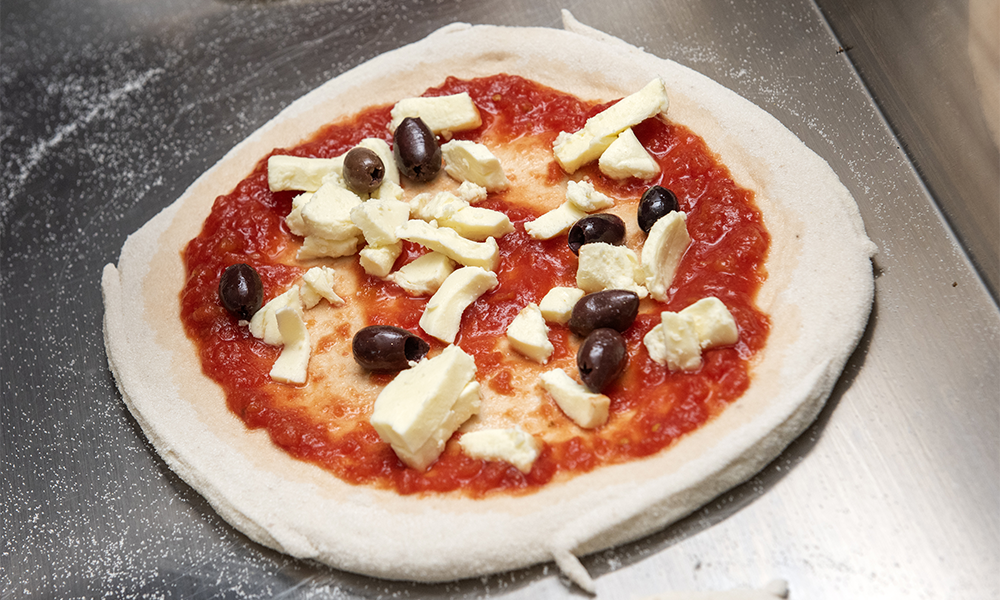
“We used to do Neapolitan pizza, which is popular in London, but we thought we could do something different,” said Rafael.
“People who make it tend to follow the traditional techniques but we use a different flour and folding method and try to expand our ingredients – charcuterie from Spain, cheeses from France and not just Italian products.
“For us to actually have an impact we had to have the classics, because that’s what people look for.
“So we use tomato and mozzarella from Italy, but we try to mix it up as well. We do a pizza with Montgomery Cheddar from England and chorizo from Spain.”
His favourite is the burrata and nduja pizza and they also offer four vegan options – a truffle pizza and a weekly special.
“I feel like eventually we’re gonna get rid of some of the classics and try to have more unique flavours,” said Rafael.
It’s a very competitive market and there are so many different styles as well. You have the cheap pizzas, the Domino’s, and the more artisanal ones.
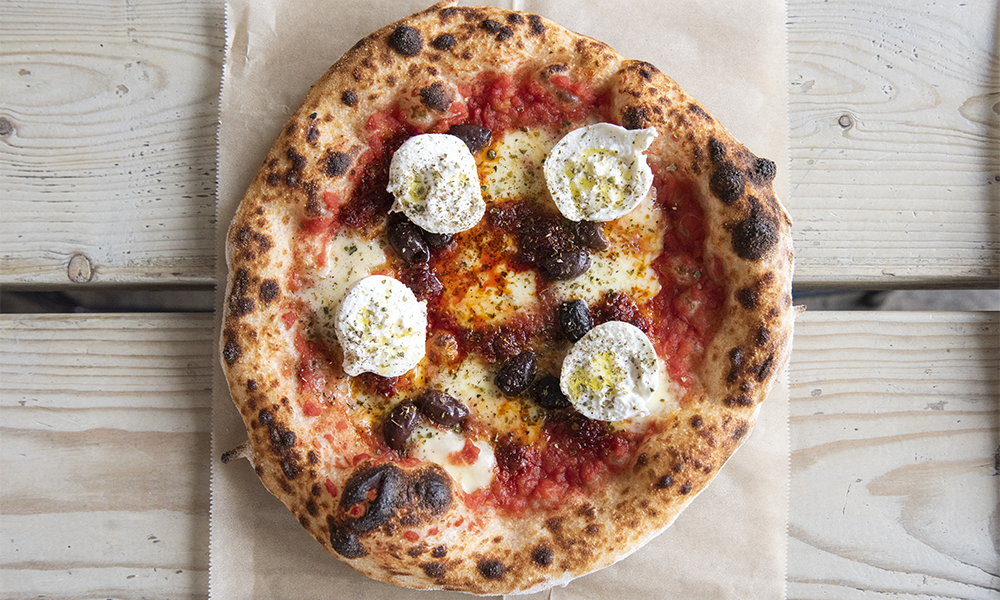
“I feel like we are in the high end of pizzas now in terms of quality and prices.”
They are also adding another layer to the business with a van featuring a wood-fired oven.
The duo have just used it for a stint at West India Quay as part of the Kerb Incubator programme and will now be heading to the street market at the Gherkin in the City.
Rafael said he couldn’t see the business leaving Deptford though – they love the neighbourhood so much and are enjoying experimenting with how they do things there.
Their wives take turns to help out in the restaurant at weekends and they have been adapting their hours and menu as they go along based on what customers want.
“We’re still figuring out when is best to be here but enjoying it all,” said Rafael.
“I don’t remember once having an argument with Ale – we are pretty chill.
“We know how to respect one another, that everyone has their moments and how to give one another space.”
So how does this bubbling, almost-finished business compare to their Deptford pizza past?
“It’s just us in the kitchen like it was before, but it’s great, because here the customers can see the pizzas being made and we get to see them eating it,” said Rafael.
“That’s what we’re here for – to see their faces when they enjoy the food.”
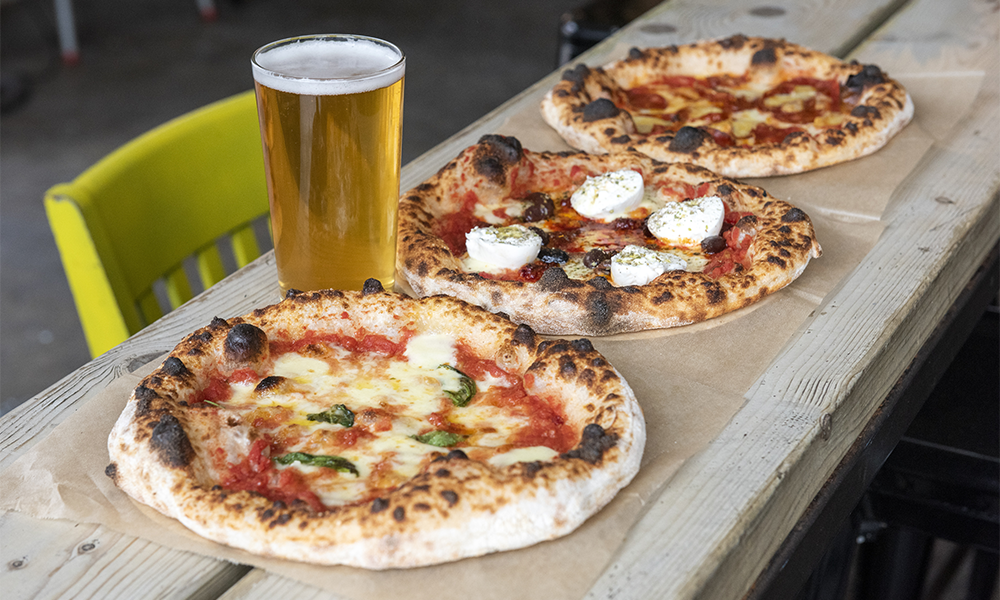
Read more: How Canary Wharf’s Junior Board is shaping the estate
Read Wharf Life’s e-edition here
Subscribe to Wharf Life’s weekly newsletter here
- Laura Enfield is a regular contributor to Wharf Life, writing about a wide range of subjects across Docklands and east London





